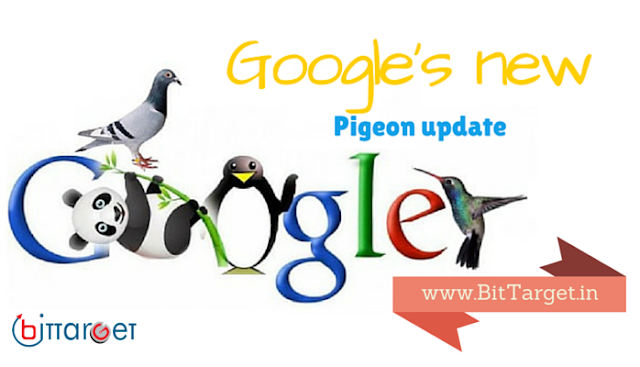Google's most recent search algorithm update- surnamed Pigeon has impacted local search, retailers and SEO since July of this previous year
- Makes Local Search Rankings Work More Similarly to Organic/National Search
Google uses more than 200 hundred factors to determine where your website ranks in organic search. Organically, Google’s looking for fresh, original content, beautiful, well-organized websites, and naturally optimized web pages.
It’s too early to tell precisely what the ramifications will be for local search. But Google has at least made it clear it wants local search to work more like organic search.
- Eliminates the Local 7-Pack for Many Search Queries
Fewer search results are going to display it now. Experts are still debating whether this is bad or good for local SMBs.
- Local Directories Get Better Visibility in Search Results
In the past, Yelp accused Google of manipulating search results with its name lower in Google’s rankings. Whether that’s true or not, I don’t know.
But Yelp gets better search visibility now. Others like Urbanspoon, TripAdvisor, and even very small directories few people know are getting better web rankings too.
- Search Radius is More Precise
“Search radius” refers to your geographic location, and what results appear when you do a local search. A post by Search Engine Watch notes in one instance this “has been reduced significantly.”
Other individuals have made conflicting reports. In the near future, we’ll know more about the true impact of Pigeon on search distance and location and your rankings.
How does the Pigeon update affect local businesses
The Pigeon update will undoubtedly have some kind of effect on rankings of both local businesses as well as non-local businesses that compete in rankings with local alternatives – ultimately resulting in potential increase or decrease in referrals, organic traffic, and keyword rankings for most sites.
Businesses in the UK do have the benefit of learning from post-Pigeon research from the US, however, Google may well have further 'tweaked' it's Pigeon algorithms since July 24th following heavy criticism especially in relation to the update re-opening local results to spam tactics.
Pigeon affects both Google Web Search and Google Maps Search
In the past, similar searches on Google Web Search and Google Maps Search often yielded a very differing set of results. The Pigeon algorithm now connects the two in a more cohesive way - it ties deeper into the site’s web search capabilities, leveraging hundreds of ranking signals, along with search features like spelling correction capabilities, synonyms and Google’s knowledge graph.
Priority for local directories and more accurate results for Yelp queries
The algorithm places greater weight on directories and directory listings for local searches with sites like OpenTable, TripAdvisor, Urbanspoon etc. receiving higher visibility within the search results.
Yelp-specific queries will appear ahead of Google's own results. This is in result to Yelp criticising Google for 'pushing its own reviews ahead of Yelp’s, even when the searcher asked specifically for “yelp” in their query'.
Yelp-specific queries will appear ahead of Google's own results. This is in result to Yelp criticising Google for 'pushing its own reviews ahead of Yelp’s, even when the searcher asked specifically for “yelp” in their query'.
Pigeon does not improve SERPs (search engine results page)
Following an update, if the organic traffic sent to your website by Google is down, but the quality (conversion rates) is up, then this is considered a successful update from Google's point of view. For the Pigeon update however, the response has been a decrease in both organic traffic and conversion for businesses that were negatively affected. In other words, Pigeon does not affect the quality of your traffic, it simply gives you less of it.
Authoritative domains are still important
Taking equity and page authority into account, links metrics still play an important part. Businesses with well-structured, mobile-friendly pages and optimised content actually saw an increase in traffic post-Pigeon. In other words, continuing with your SEO efforts, focusing on best-practises still works as one would expect, however, the approach to take does depend on the size and maturity of both the business and the website.
Location (proximity) is now more important than ever
Proximity clearly matters as a search signal in the post-Pigeon world. There is a clear preference for businesses that are closer to city centre, a slight preference for locations just outside of urban centres in large markets but a sharp drop for any past 20 miles. Over time however, this affect is likely to subside as the location of the searcher becomes more significant. But for now, the prime position for a business is to be as close as possible to city centre.
Don't over-optimise your website
This links back into your overall approach to optimisation, with the 'natural' approach winning yet again. Businesses that have previously adopted an 'aggressive' approach have seen the biggest drop.




Post A Comment:
0 comments: